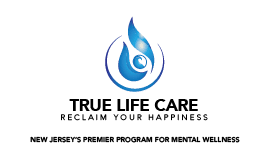Medication assisted treatment and counseling is an effective approach to treating addiction. It integrates using medication with therapy and counseling. Please contact our admission office for more informations about our medication assisted treatment and counseling in New Jersey.

Medication-assisted treatment (MAT) is an evidence-based approach to addiction treatment.1
It combines the use of medications with counseling and behavioral therapies. It treats individuals with substance use disorders, such as opioid or alcohol addiction.
Medication assisted treatment and counseling leads to an increased chance of recovery. These treatments provide a multifaceted approach that supports individuals in achieving long-term recovery and improving their quality of life.
Medication assisted treatment and counseling work together to address different aspects of addiction. Medications help reduce withdrawal symptoms and cravings.
Thus, it stabilizes the individual on a physical level. Counseling provides support, guidance, and strategies. This works to address underlying issues, triggers, and behavior patterns.
These therapies help individuals understand the behaviors contributing to substance use disorders. This helps the patient to make beneficial changes in these behaviors to aid in recovery.
One example is cognitive behavioral therapy (CBT). This helps identify and change negative thought patterns and behaviors.
Group therapy involves sessions where individuals with similar substance use disorders come together.
Here, they can share experiences, provide support, learn from one another, and receive encouragement and understanding.
This type of therapy can help address underlying issues contributing to substance use. It also helps patients develop coping strategies.
Family therapy involves sessions that bring together family members to improve their relationships. This includes addressing communication, fostering understanding, and developing healthier interactions.
Support groups include those such as Alcoholics Anonymous (AA) or Narcotics Anonymous (NA). These provide a setting where individuals with substance use disorders can connect.
The individuals in these groups face similar challenges. This allows them to share experiences and help one another. These groups offer a sense of community, encouragement, and guidance in maintaining sobriety.
Combining medication assisted treatment and counseling offers several benefits for individuals in addiction recovery:
This dual focus promotes well-being and increases the chances of successful recovery.
By addressing both components, individuals can experience:
Medications used in MAT can help reduce cravings. This makes it easier for individuals to stay on track with their recovery.
The healthcare provider considers the individual when choosing counseling options. This includes their preferences, strengths, and personal circumstances. Some individuals may feel more comfortable with certain types of therapy.
For example, in outpatient settings, certain therapies may be more available. This includes individual therapy, group therapy, and support groups. In residential settings, intensive individual and group therapy may be more accessible.
The resources of the treatment program play a role in the counseling options offered. This means that certain programs may have different forms of medication assisted treatment and counseling.
This increase in effectiveness comes from a willingness to take part in treatment. This includes attending sessions often and following through with the treatment plan.

Don’t let addiction control your future. Contact True Life Care today for more informations about our medication assisted treatment and counseling in New Jersey and take that first step towards healing. Your recovery is within reach, and True Life Care is here to help you seize it.

Here at True Life Care, we believe healing is a journey and we are here to support you every step of the way. Our goal is to empower you to take control of your mental health and live your best life. We are honored to be a part of your journey and look forward to your success!


True Life Care Mental Health New Jersey. Copyright 2023. All Rights Reserved.